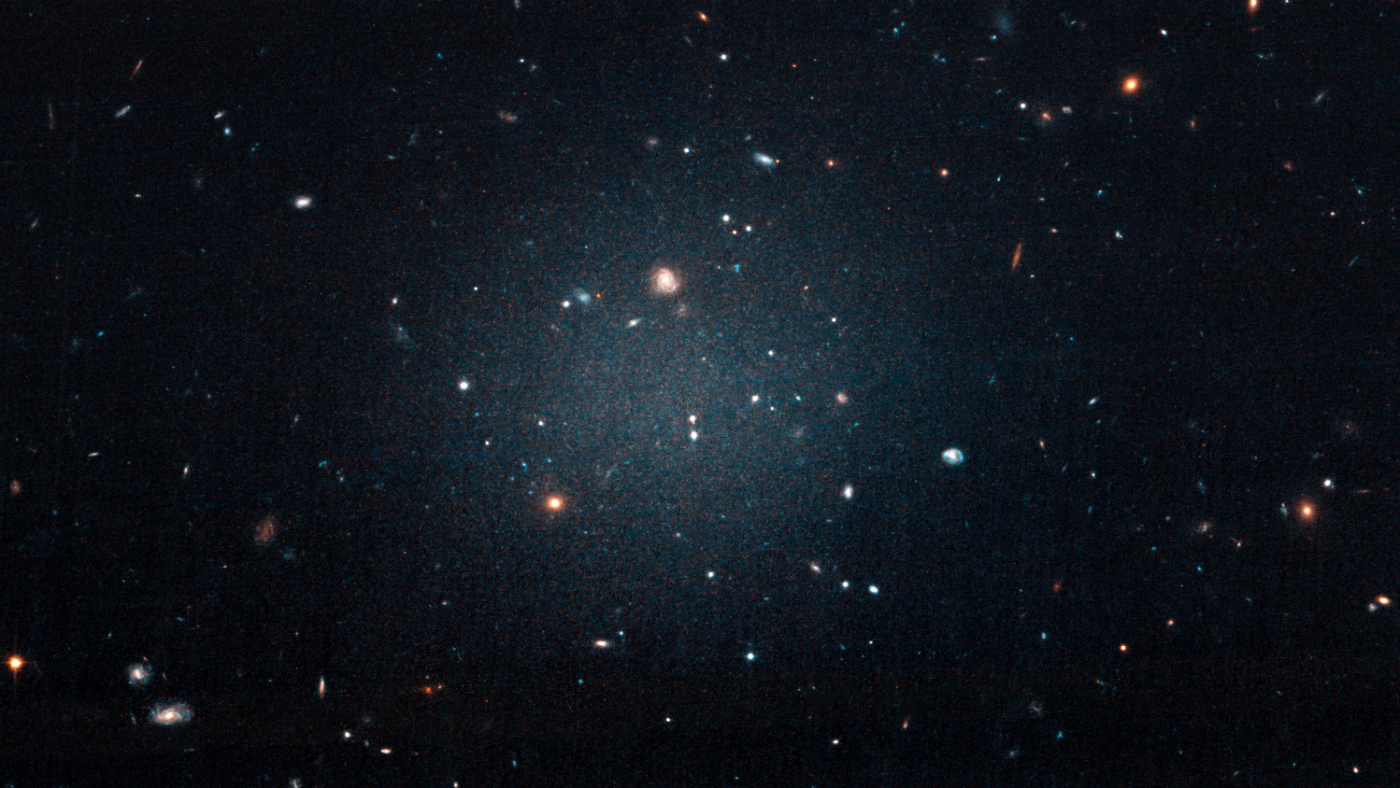Galaxy without dark matter challenges scientific theories
NGC1052-DF2 appears to be lacking the mysterious substance

A free daily email with the biggest news stories of the day – and the best features from TheWeek.com
You are now subscribed
Your newsletter sign-up was successful
Scientists are baffled after discovering the existence of an “unusually transparent” galaxy that appears to contain no dark matter.
The “ghost” galaxy, known as NGC1052-DF2, is some 65 million light-years away and about the size of the Milky Way. And according to a new study published in the journal Nature, it contains no more than 1/400th of the amount of dark matter that astronomers had expected.
“The absence of dark matter from a small patch of sky might appear to be a non-problem, given that astronomers have never directly observed dark matter anywhere,” says The Guardian.
The Week
Escape your echo chamber. Get the facts behind the news, plus analysis from multiple perspectives.

Sign up for The Week's Free Newsletters
From our morning news briefing to a weekly Good News Newsletter, get the best of The Week delivered directly to your inbox.
From our morning news briefing to a weekly Good News Newsletter, get the best of The Week delivered directly to your inbox.
However, the newspaper continues, most current theories of the physics of the universe suggest that where regular matter is found, dark matter must also be present, with the latter dominating at a ratio of 5:1.
As it has greater mass than normal matter, dark matter is believed to be vital in holding the necessary gas together while galaxies are forming, explains the BBC.
“In other words, no dark matter, no galaxy,” says National Geographic.
The discovery of an apparent exception to that rule, NGC1052-DF2, therefore poses major questions about our understanding of the universe.
A free daily email with the biggest news stories of the day – and the best features from TheWeek.com
“Finding a galaxy without dark matter is unexpected, because this invisible, mysterious substance is the most dominant aspect of any galaxy,” said lead study author Pieter van Dokkum, from Yale University. “Something like this has never been seen. NGC1052-DF2 challenges the standard ideas of how we think galaxies form.”
A team from the Connecticut-based university used the Hubble Space Telescope to closely observe the galaxy, measuring its distance from Earth and looking at the star clusters within.
“I spent an hour just staring at the Hubble image," said van Dokkum, the Nasa website reports. “It’s so rare, particularly these days after so many years of Hubble, that you get an image of something and you say, ‘I’ve never seen that before.’
“This thing is astonishing: a gigantic blob that you can look through. It’s so sparse that you see all of the galaxies behind it. It is literally a see-through galaxy.”
-
 A dreamy long weekend on the Amalfi Coast
A dreamy long weekend on the Amalfi CoastThe Week Recommends History, pasta, scenic views – this sun-drenched stretch of Italy’s southern coast has it all
-
 Can foster care overhaul stop ‘exodus’ of carers?
Can foster care overhaul stop ‘exodus’ of carers?Today’s Big Question Government announces plans to modernise ‘broken’ system and recruit more carers, but fostering remains unevenly paid and highly stressful
-
 6 exquisite homes with vast acreage
6 exquisite homes with vast acreageFeature Featuring an off-the-grid contemporary home in New Mexico and lakefront farmhouse in Massachusetts
-
 Nasa’s new dark matter map
Nasa’s new dark matter mapUnder the Radar High-resolution images may help scientists understand the ‘gravitational scaffolding into which everything else falls and is built into galaxies’
-
 Moon dust has earthly elements thanks to a magnetic bridge
Moon dust has earthly elements thanks to a magnetic bridgeUnder the radar The substances could help supply a lunar base
-
 How Mars influences Earth’s climate
How Mars influences Earth’s climateThe explainer A pull in the right direction
-
 The ‘eclipse of the century’ is coming in 2027
The ‘eclipse of the century’ is coming in 2027Under the radar It will last for over 6 minutes
-
 NASA discovered ‘resilient’ microbes in its cleanrooms
NASA discovered ‘resilient’ microbes in its cleanroomsUnder the radar The bacteria could contaminate space
-
 Artemis II: back to the Moon
Artemis II: back to the MoonThe Explainer Four astronauts will soon be blasting off into deep space – the first to do so in half a century
-
 The mysterious origin of a lemon-shaped exoplanet
The mysterious origin of a lemon-shaped exoplanetUnder the radar It may be made from a former star
-
 The 5 biggest astronomy stories of 2025
The 5 biggest astronomy stories of 2025In the spotlight From moons, to comets, to pop stars in orbit